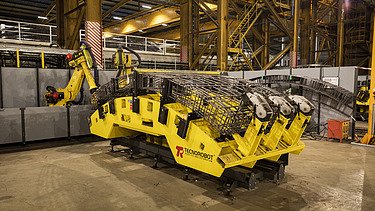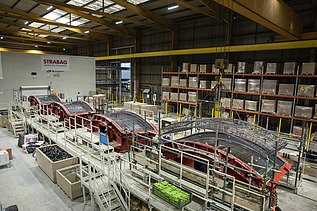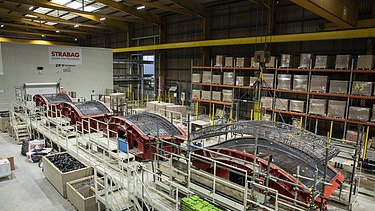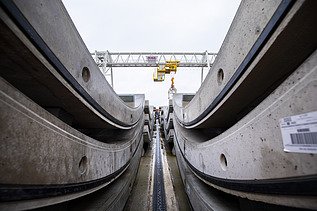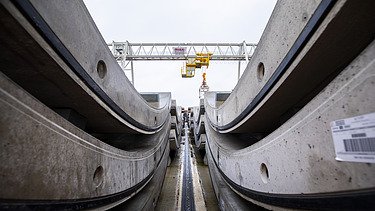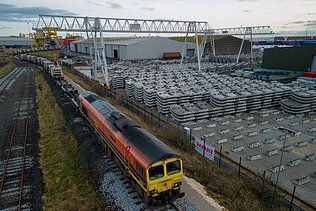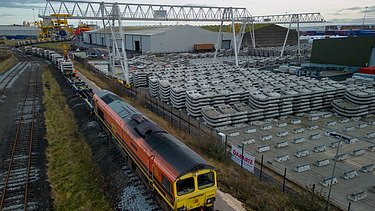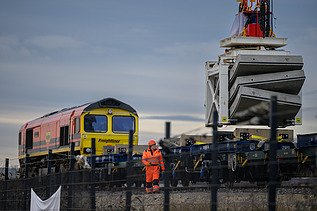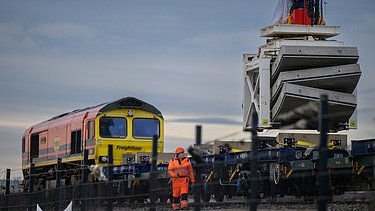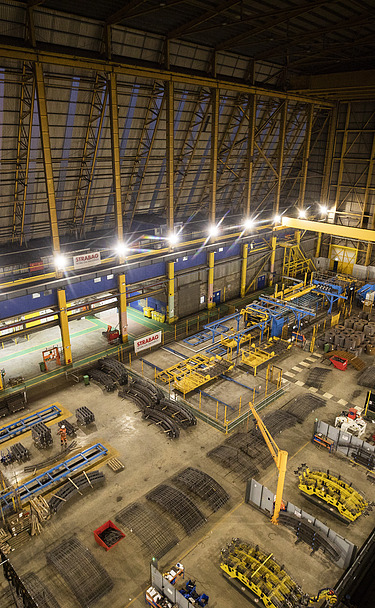
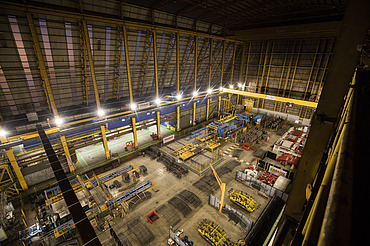
Client:
Skanska Costain STRABAG JV (HS2 Ltd)
Location:
Hartlepool, UK
Build time:
2021 - 2023
Hartlepool Advanced Manufacturing Facility
Developed by repurposing a 45,000m2 oil rig fabrication site, the STRABAG Advanced Manufacturing Facility is a highly sophisticated factory with excellent transportation links by sea, road, and rail.
The facility will deliver over 83,500 precast concrete segments for HS2’s London tunnels, with the scope to adapt production for further STRABAG projects in the future.
The modern advanced manufacturing facility houses a state-of-the-art automated segment carousel and reinforcement hall, with telemetry-controlled robots producing the high-quality reinforcement cages required for each segment. Together with optimised 3D reinforcement planning, newly developed templates, and a new design for the reinforcement cages, the use of robotics ensures shorter turnaround times and better quality in production.
The site near Hartlepool Docks offers transport links by both sea and rail. STRABAG UK has reinstated a previously disused railhead and platform at the site, allowing the segments produced to be transported by rail to the Skanska Costain STRABAG Joint Venture (SCS JV) Logistics Hub near Willesden Junction in London and then directly into the tunnel portals.
Environmental and social responsibility
By repurposing and restoring existing infrastructure, we have ensured that the production and transportation of segments at the Advanced Manufacturing Facility have a minimal impact on the environment. The facility also demonstrates STRABAG UK’s long-term commitment to manufacturing in the north-east of England, with the factory creating over 170 local jobs.
The automation and robotics used in the factory reduce steel reinforcement wastage to negligible volumes and lead to significantly better energy efficiency. The project also prioritises the use of the local supply chain, sourcing aggregate from local quarries and using UK recycled steel.
The site's direct access to the rail network creates a more sustainable solution for the transportation of the 83,500 tunnel segments required for the HS2 project, avoiding over 56,000 lorry journeys.
